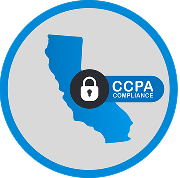As the modern workplace continues to evolve, soft skills have emerged as a critical component of successful teams and organizations. While technical skills remain essential, traits like communication, adaptability, and leadership are increasingly valued for fostering a collaborative and productive work environment. Implementing a soft skills evaluation tool in your recruitment process can help ensure that candidates possess the personal qualities necessary to thrive within your company culture and contribute to long-term success.
What is a Soft Skills Evaluation Tool?
A soft skills evaluation tool is a method or platform designed to assess the non-technical skills of candidates during the hiring process. These tools evaluate attributes such as teamwork, problem-solving, emotional intelligence, and communication through structured assessments, interviews, and behavioral tests.
Key Benefits of Using a Soft Skills Evaluation Tool
1. Holistic Candidate Assessment
By evaluating both technical and soft skills, recruiters gain a comprehensive understanding of each candidate's overall suitability for a role. This holistic approach ensures hires who can not only perform the tasks but also interact effectively within the team.
2. Improved Team Dynamics
Assessing soft skills helps identify candidates who will fit well into your existing team dynamics. Employees with strong communication and interpersonal abilities are often better equipped to collaborate, reducing conflicts and enhancing workplace harmony.
3. Enhanced Leadership Potential
Soft skills such as empathy, communication, and adaptability are key indicators of leadership potential. Evaluating these skills during recruitment can help organizations identify future leaders who can drive innovation and guide teams effectively.
4. Increased Employee Retention
Hiring candidates with strong soft skills can lead to higher job satisfaction and retention rates. Employees who are aligned with the company’s values and culture are more likely to remain engaged and committed, reducing turnover costs.
5. Alignment with Organizational Culture
Soft skills evaluation tools help ensure that new hires share the company’s core values and cultural principles, strengthening the organization's overall identity and helping maintain a positive workplace environment.
Implementing a Soft Skills Evaluation Tool
To effectively implement a soft skills evaluation tool, organizations should choose methods or platforms that offer tailored assessments suited to their specific industry and company culture. Incorporating these evaluations into existing hiring workflows and providing training for interviewers can further enhance their effectiveness.
Conclusion
As the nature of work continues to change, emphasizing soft skills in the recruitment process is not just beneficial but essential. A soft skills evaluation tool enables organizations to build well-rounded teams capable of navigating today’s complex work environments with confidence and adaptability.
NTRVSTA provides advanced solutions for evaluating soft skills, equipping businesses with the insights needed to select candidates who will thrive in both their roles and the broader team dynamics.













